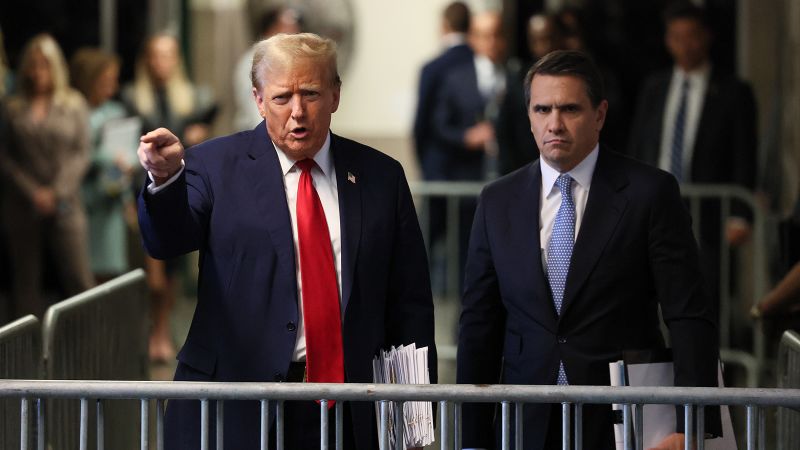Donald Trump’s return to his hush money trial in New York is not the most critical courtroom drama in his day. The US Supreme Court will be hearing his sweeping immunity case, which could have profound legal implications and raises questions about the powers of the presidency. The double court date represents another twist in the saga of the former president, who is pushing America’s judicial and constitutional systems to their limits as he runs for the White House again. While Trump would prefer to be at the Supreme Court, he is required to attend his trial in New York where he faces accusations of covering up an affair.
Trump accuses Judge Juan Merchan of preventing him from being at the Supreme Court and implies that he is being unfairly treated. Trump’s fate in the New York case will be decided by a jury, but he is playing to a much wider audience – the general electorate ahead of his clash with President Joe Biden. He continues to make false claims about being persecuted by the Biden administration and is using his on-camera appearances to boost his campaign finance operation. Despite stalling tactics, Trump faces reminders of his efforts to overturn the 2020 election as his close associates are indicted in election subversion schemes.
Trump’s Supreme Court case is a part of his wider campaign strategy and an attempt to delay his federal election interference trial. The case represents a metaphor for a former president who recognizes no limits on his authority or constitutional constraints. While Trump pushes to restore presidential powers that could derail federal prosecutions against him, the legal quagmire he faces is deeply entangled with his campaign for a second term. The New York trial, where he faces charges of misleading voters and violating a gag order, is significant even though it lacks the high stakes of the Supreme Court drama.
The judge in the New York trial is considering additional sanctions against Trump for repeatedly violating the gag order, which is meant to protect the integrity of the case. Any action taken by the judge could play into Trump’s narrative of persecution, making the situation delicate. While fining Trump may not be a significant deterrent, a custodial sentence could provide more material for his claims of unfair treatment. Prosecutors are requesting fines for Trump’s infringements of the gag order, but the judge must carefully balance maintaining control of the courtroom while ensuring that the interests of justice are not prejudiced.
During the trial in New York, David Pecker, the former CEO of American Media, will be back on the stand to testify about a ‘catch and kill’ scheme to suppress negative stories about Trump before the 2016 election. Pecker, under an immunity agreement, is expected to reveal details about orchestrating nondisclosure agreements for negative stories about Trump. Despite his engagement in the trial, Trump may be more focused on the Supreme Court case he will not be able to witness in real time. The conservative Supreme Court majority, which Trump largely built, will be considering his immunity claim as Trump continues his legal battles and political aspirations.


